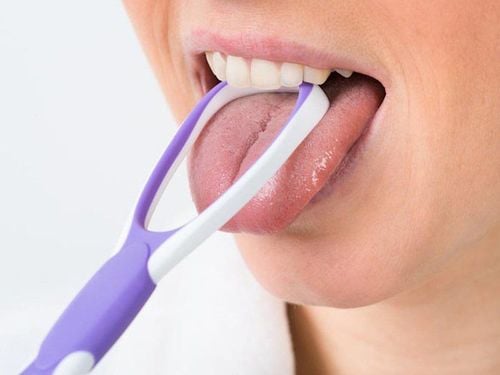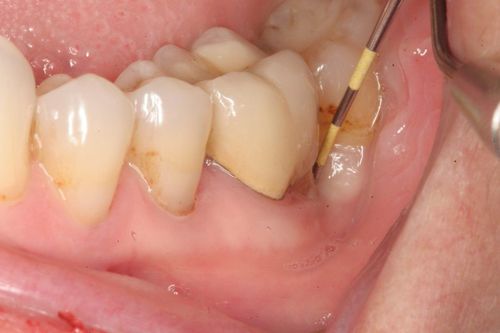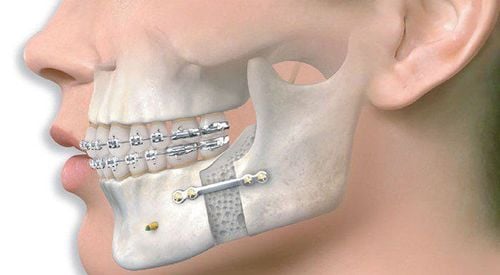This is an automatically translated article.
The article is professionally consulted by Doctor of Dentistry - Jaw - Face - Department of Medical Examination & Internal Medicine - Vinmec Hai Phong International General Hospital.
Teething wisdom does not mean anything about chewing function because 28 teeth are enough for people to eat and drink every day. In addition, the teeth are located deep inside the jaw, so they do not have high aesthetic significance, and can also cause aesthetic deviation.
1. What are wisdom teeth?
In fact, wisdom tooth is the name used to refer to the last molars that erupt on each side of the jaw, or tooth number 8. This tooth does not appear in young children when teething or when teeth have been replaced. last, usually in adults 18 years of age or older.Because wisdom teeth come in last, the palate of the human mouth often does not have enough room for them to grow normally. As a result, wisdom teeth grow out of alignment, push each other, crowding other teeth, leading to swelling and pain.
There are many cases of encountering a situation where wisdom teeth grow underground, grow misaligned without timely intervention, causing the gums to swell, easy to accumulate food, causing bad breath, gingivitis...
2. What are the effects of wisdom teeth?
In fact, these 8 teeth are called wisdom teeth because they usually come in when people are adults, at an adult age, can be aware of everything.
Due to the late appearance, it has to go through the process of growing the roots and is large enough for the wisdom teeth to begin to emerge from the gums. Many cases of wisdom teeth do not grow smoothly, causing people to experience a lot of pain and inconvenience. Therefore, for many people, wisdom teeth have almost no effect on aesthetics or chewing function.
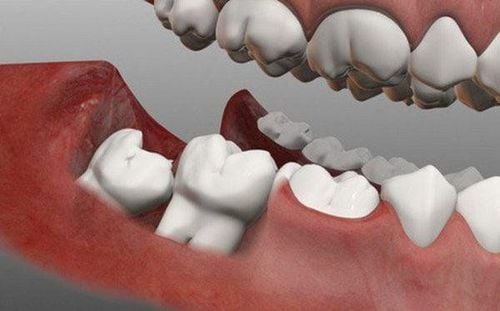
Răng khôn gần như không có tác dụng về mặt thẩm mỹ hay chức năng nhai
In other words, wisdom teeth are also "enemies" of many people because they bring a lot of trouble and pain. Almost all wisdom teeth have to be extracted, sooner or later. According to a survey by the American Dental Association, it is estimated that up to now, about 85% of wisdom teeth have been removed instead of remaining for the rest of their lives.
There are also many people who think that wisdom teeth do not grow naturally, or that wisdom teeth have its own meaning, so it should not be removed. Human teeth are enough to have 32 teeth, of which 4 wisdom teeth are in both the upper and lower jaw.
Not only has no special meaning, but wisdom teeth also cause a series of dangerous complications. First, the process of growing wisdom teeth always causes more pain and discomfort than the eruption of other teeth.
Wisdom teeth erupting can also cause many complications such as: inflammation, pain when wisdom teeth erupt. Wisdom teeth grow crooked, grow underground, causing the patient to swell and hurt in the mouth, so they cannot chew food.
If the inflammation caused by the wisdom tooth lasts for a long time without timely examination or intervention, it will destroy the bone around this tooth, which is worse than easy to push the remaining teeth.
3. When should wisdom teeth be extracted?
The reason why wisdom teeth need to be extracted is because wisdom teeth often grow in unfavorable positions, or when the jawbone has run out of space, the wisdom teeth are too deep in the jaw. This will make it difficult to clean, creating a favorable environment for bacteria to grow and multiply and increase the risk of gingivitis and tooth decay.
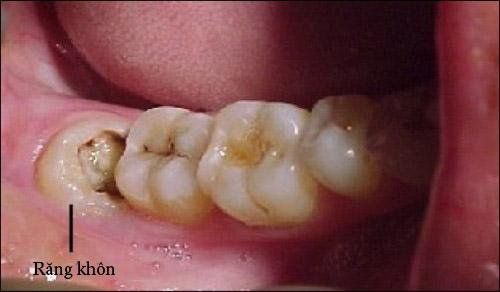
Răng khôn gây đau đớn, khó chịu với nhiều người
There have been many cases of wisdom teeth growing but not removed and not treated in time, causing the infection to spread to surrounding areas.
Need to remove wisdom teeth when wisdom teeth erupt, causing painful complications, cysts, repeated infections, affecting neighboring teeth. When wisdom teeth have not caused complications but there is a gap between the wisdom teeth and the adjacent teeth, which will affect the adjacent teeth in the future, they should also be removed to prevent complications. When wisdom teeth grow straight, have enough space, are not obstructed by bones and gums but do not have the opposite teeth to match, causing wisdom teeth to extend to the opposite jaw, creating stairs between teeth, causing food cramming, sores Gums should be removed. Wisdom teeth grow straight, have enough space, are not obstructed, but the shape is abnormal, deformed, small, causing cramming of food with adjacent teeth, in the future will cause tooth decay and periodontitis next to them, should be indicated. pluck. Wisdom teeth have periodontal disease or tooth decay, the patient needs to do orthodontics, implant dentures. Wisdom teeth are the cause of a number of other systemic diseases. Not all wisdom teeth need to be extracted, and not all wisdom teeth need to be extracted. Wisdom teeth can be preserved in the following cases:
Wisdom teeth grow straight, normal, do not get stuck with bone and gum tissue, do not cause complications. In this case, if kept, the patient needs to use dental floss and a specialized brush to clean it thoroughly. Patients with chronic diseases such as cardiovascular disease, blood clotting disorders, diabetes... Wisdom teeth are directly related to some important structures such as maxillary sinuses, nerves...
Please dial HOTLINE for more information or register for an appointment HERE. Download MyVinmec app to make appointments faster and to manage your bookings easily.




